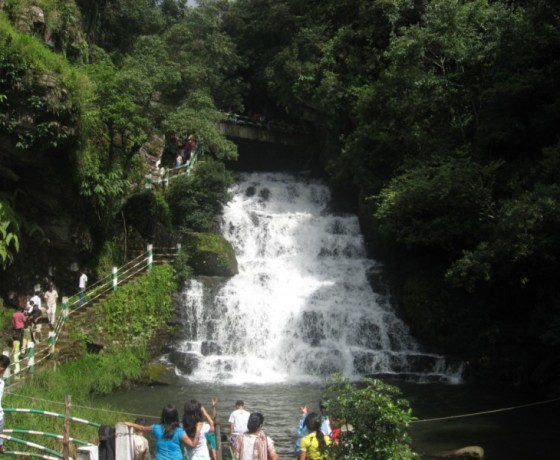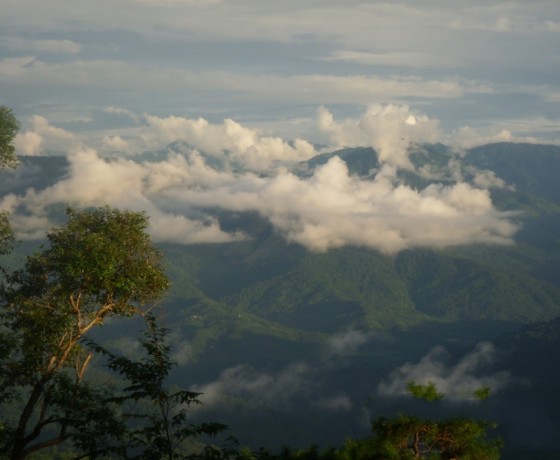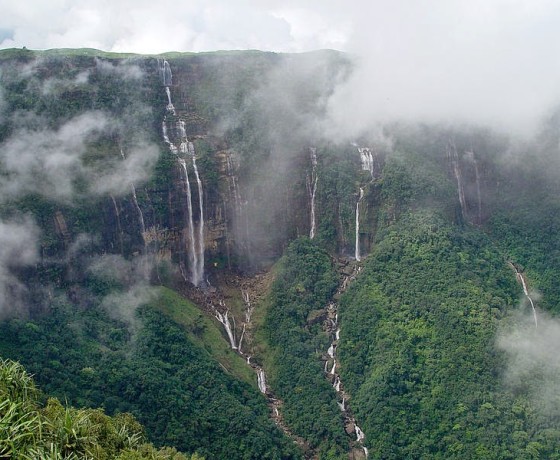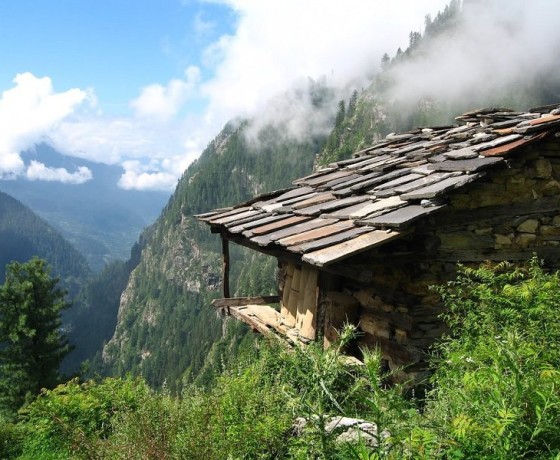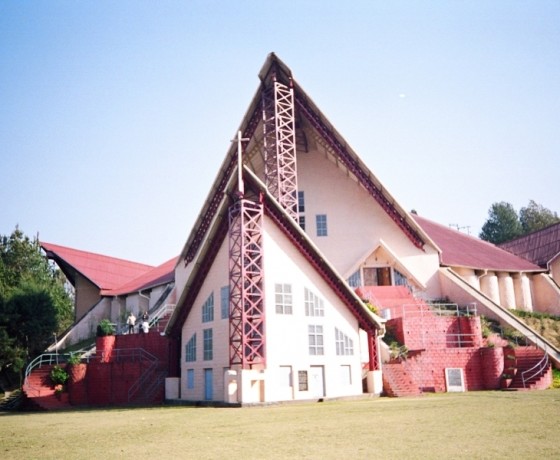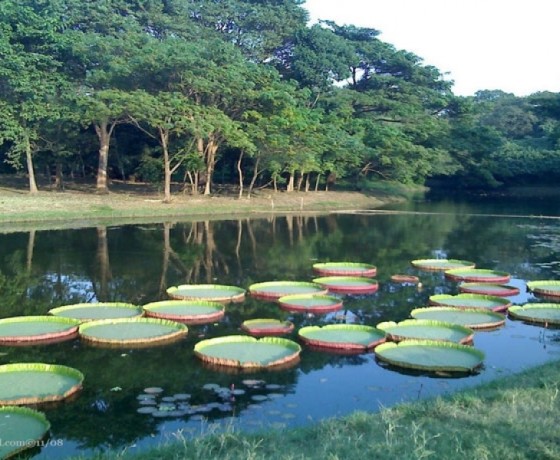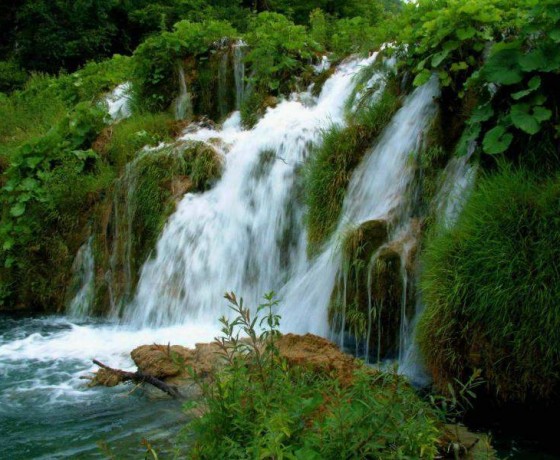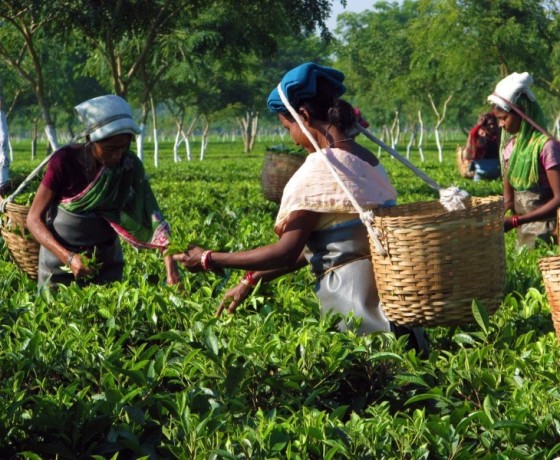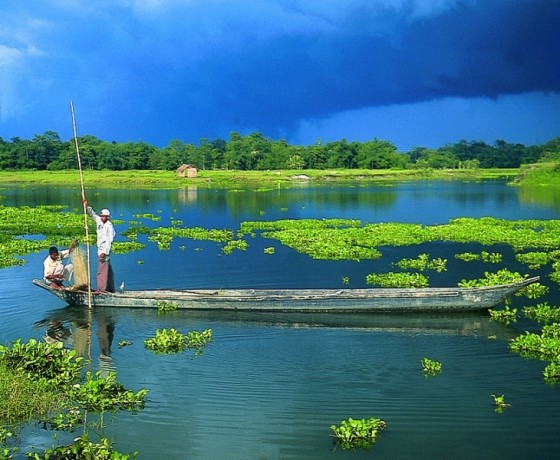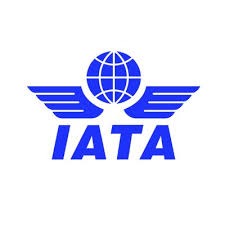TRIPURA – MEGHALAYA – ASSAM – ARUNACHAL PRADESH – NAGALAND
DAY 01 AGARTALA
Today fly to Agartala, a place of cultural syhthesis, arrive at Agartala- the capital city of Tripura is tucked in the Northeastern part of India. Received and then we go for an excursion: Excursion to Udaipur – the temple city of Tripura. En route visit Sipahijala Wild Life Sanctuary famous for Spectacle Monkey, visit TripuraSundari Temple at Udaipur and after lunch we set to explore the majestic landscape of Mela Ghar to see the Neer Mahal – the water palace in Rudrasagar lake. Drive back to Agartala. Overnight at Agartala.
DAY 02 AGARTALA – SILCHAR
Today after breakfast we drive to Unakoti ( 06 hrs drive), passing through many villages, reach Unakoti explore the place and then drive further to Silchar ( 04 hrs) for overnight stay. UNAKOTI: It is a historic Shaiba pilgrimage spot and dates back to 7th – 9th centuries if not earlier. While the marvellous rock carvings, murals with their primitive beauty form the chief attraction, natural beauty including mountain scenery and waterfalls are an added bonus. As per Hindu mythology, when Lord Shiva was going to Kashi along with one crore gods and goddesses he made a night halt at this location. He asked all the gods and goddesses to wake up before sun rise and proceed for Kashi. It is said that in the morning, except Shiva himself, no one else could get up so set out for Kashi himself cursing the others to become stone images as a result we have one less than a crore stone images and carvings at Unakoti.These carvings are located at a beautifully landscaped forest area with green vegetation all around which add to the beauty of the carvings
DAY 03 SILCHAR – SHILLONG
After breakfast we leave Silchar and drive to Meghalaya – the abode of cloud, travelling a stretch of long bad road we reach the plateaus of Meghalaya from where you get a majestic view of the land, Enroute we will be passing through some small Khasi Tribal villages. Reach Shillong ( 280 kms / 08 hrs drive) and overnight stay.
DAY 04 SHILLONG – MAWLLYNNONG – CHERRAPUNJEE – SHILLONG
After breakfast excursion to Mawllynong (100 kms / 3 hrs drive approx), explore the village and the living root bridge and then we drive further to Cherrapunjee and visit the falls and cave and then drive back to Shillong and overnight Note: It is advisable to carry have packed lunch to Mwallynong. Mawlynnong village, situated 90 kms ahead of Shillong on the Shillong-Dawki Road, 30 kms from Pynursla, is a village of 75 households with a population of 400. An idyllic location, this village epitomizes a standard, which all other villages need to aspire to be. Dubbed the cleanest village in India by Discover India Magazine, the primary Village School till class V boasts of its no dropout record and the village of 90 % literacy. Paved walkways and beautiful flowerbed all along mark the village, with waterfalls, *a living root bridge, hilly rivulets, acacia plantation and an excellent view of the faraway plains of Bangladesh all contribute to the ambience of this village. Farming of betel nut & leaves, broomsticks and pepper along with bee rearing are the primary economic activity of this Village and with the village headman himself taking the responsibility of making visitors comfortable, a day in this village gives an insight into the life of the Khasis, the influence of the Church and its metamorphosis.
DAY 05 SHILLONG – MANAS NATIONAL PARK
Today after breakfast we drive to Manas National Park ( 295 kms / 07 hrs drive ), reach Manas and check into hotel and overnight stay. MANAS NATIONAL PARK: The National Park was designated as a Tiger Reserve in 1973.Situated in the foothills of Bhutanese Himalaya, it famous for its majestic Tiger and Golden Leaf Monkey discovered only a few decades ago. It is a paradise for bird lovers, birds which can be seen here are the Giant Hornbills, Pheasants, Jungle Fowl, Scarlet Minivet, Partridge, Florican and variety of water birds.
DAY 06 MANAS
Early morning explore the pristine beauty and wilderness of the jungle on the back of an elephant (for one hour) in the Bansbari range of the park. Afternoon go for a jeep safari in the most beautiful point of Manas National Park – Mathanguri and you could also have an experience of night safari while returning back to your lodge. Your last night at Manas.
DAY 07 MANAS – NAMERI
After breakfast at Manas you will drive to Nameri National Park. Nameri National Park: Covering an area of 200sq.kms, it is situated in the District of Sonitpur; the Nameri is the third National Park of Assam. It is a Tiger Reserve and also a birders paradise with more than 376 species of birds recorded so far. The inaccessibility and continuity with the neibouring forest areas have helped the wildlife of Nameri to flourish. There is a good prey base in the form of Sambar, Barking deer, Hog Deer, Wild Boar and Gaur. About 3000 domestic cattle also form part of this prey base for Tiger and Leopards. Evening at leisure beside the camp fire and listening to the jungle. Overnight at Eco- Camp (Nameri)
DAY 08 NAMERI – ZIRO
Today take a walk into the national park and later after breakfast drive to Ziro ( 310 kms / 08 hrs drive), reach Ziro and check into accommodation and overnight stay.
DAY 09 ZIRO
Breakfast at hotel. Later drive to visit Apatani tribal village. Visit Hong village, the largest village in the Apatani plateau and the 2nd largest in Asia after Kohima or Bara Basti village in Nagaland. Walk to end of the village where the alter is erected offering chicken sacrifice to the malevolent and benevolent sprits, walk back to village to visit local house and interact with the people. As being so famous and much sought after by the tourist so for their photographs you need to have the permission from them. Overnight stay.
DAY 10 ZIRO – MAJULI
Today drive down the mountains and plates of the Ziro valley and then reach the banks of River Brahmaputra cross the river with country made motor boat and reach the other side of Majuli, explore the island and overnight stay.
DAY 11 MAJULI – JORHAT
Today explore more of Majuli Island and then after lunch we will cross the river and reach Jorhat another tea city of Assam and check into Tea Bungalows. Overnight in Jorhat.
DAY 12 JORHAT – KOHIMA
Today after breakfast drive to Kohima (235 kms / 06 hrs), reach Kohima and if time permits visit local market and later check into hotel. Evening at leisure and overnight stay at Kohima.
DAY 13 KOHIMA – KNONOMA – KOHIMA
Post breakfast visit Khonoma Village (20 kms / 45 mins), visit the 2nd World War Cemetery, where the famous Battle of Tennis Court took place, the State Museum, handloom and handicraft emporium and the local market. Depending on interest attend Hornbill Festival.Overnight at hotel. Khonoma Village: Located 20 kms west of Kohima is Khonoma village. The village referred to as “Khwünoria” by the residents is estimated to be around 700 years old and is surrounded by hills that are as high as 9000 ft. It was here that the Naga warriors made their last stand against the British in 1879. The village is named after a plant locally known as “Khüno” that grows in the area. The alder tree (Alnus Nepalensis) is found in abundance in this region and Khonoma is famous for its management of jhum fields with alder trees, which fixes nitrogen in the soil and checks soil erosion. With its mission” Green Khonoma”, it has become the Model Village for eco-tourism. The Village Council has made it mandatory for every household to have dustbins. Once in a month, a sanitation drive is carried out and the community’s garbage is burnt. The ashes and the residue are then used as manure. The combination of rich bio-diversity and stunning landscape makes Khonoma habitat an excellent candidate for eco-tourism. KOHIMA WORLD WAR-II CEMETERY: Overlooking Kohima amidst scenic environs, theKohima War Cemetery is a memorial in honor of those officers and soldiers killed during the World War II. Formerly known as Garrison Hill it is designed as a series of terraces with magnificent stone steps, bearing testimony to one of the most stubborn, close and bloody fighting in the whole of the Second World War. On the 18 plots of the cemetery, there are 1421 slabs erected in memory of soldiers who were killed in the battle of Kohima. The cemetery is maintained by the Commonwealth War Graves Commission. Before leaving Kohima the British erected a moving memorial in memory of their fallen comrades: “When you go home, tell them of us, and say: ‘For your tomorrow, we gave our today.’
DAY 14 KOHIMA – KAZIRANGA
Today drive to Kaziranga and overnight stay (230 kms / 06 hrs drive).
DAY 15 KAZIRANGA
After an early wake up, you will be taken to the riding point in the Central Range (Kohoro) for an Elephant Ride. After the ride return back to the lodge, having breakfast at 7 a.m drive to the Central Rang (Kohora) of the park for a jeep safari. After lunch at 2.15 there will be another Jeep safari in the Western Range (Baguri) of the park. Evening at leisure. Overnight at Kaziranga.
DAY 16 KAZIRANGA – GUWAHATI – FLY
Today after breakfast drive to Guwahati airport for onward destination.

